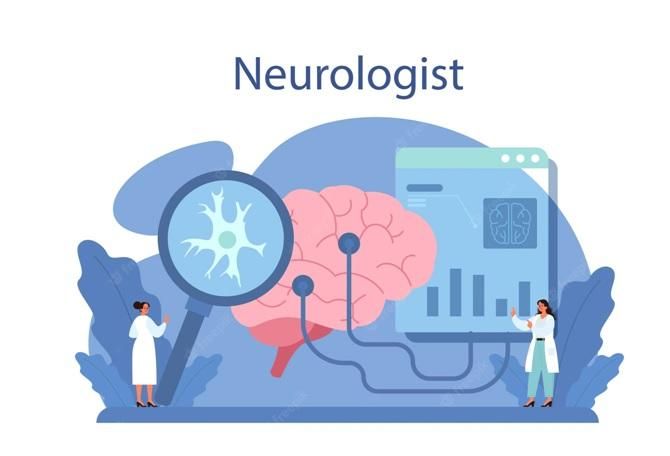Hiccups, also called singultus, is an involuntary contractions of your diaphragm. It happens suddenly by affecting a muscle involved in inhalation and exhalation. The muscle is between your abdomen and chest.
According to Dr. Ruham Nasany, contractions cause abrupt air inhalations with a hic sound due to the rapid closure of your vocal cords. Bear in mind that hiccups have different lengths depending on their types or classifications.
For instance, transient hiccups are the most common and last a few seconds or minutes. On the other hand, persistent hiccups last for more than 48 hours. Some people experience hiccup episodes for more than 30 days.
Although these rarely occur, consulting your health provider is crucial for immediate treatment. These are known as intractable or chronic hiccups. A growing body of research evidence shows that various factors can trigger hiccups. Today’s article will highlight the primary causes of hiccups. Read on!
Damage to the CNS
Damage or injury to your central nervous system is a common cause of hiccups. Your CNS constitutes the brain and spinal cord, and damage to these critical organs can trigger hiccups, leading to uncontrollable episodes.
Dr. Ruham Nasany says stroke, tumors, multiple sclerosis, brain injury, head trauma, encephalitis, meningitis, brain inflammation, and fluid accumulation are the most significant causes of damage to the CNS, leading to acute or chronic hiccups, depending on the intensity or severity of the problem.
Gastrointestinal and Thoracic Disorders
Research studies show that gastritis, gastric distention, pancreatic cancer, abdominal abscesses, inflammatory bowel disease, gallbladder disease, bowel obstruction, aerophagia, etc., are gastrointestinal disorders that can cause acute or chronic hiccups. Consulting your health provider is essential for proper diagnosis.
In addition to gastrointestinal disorders, thoracic-related problems can also hiccup. These conditions include inflamed lymph nodes, neoplasm, empyema, pneumonia, asthma, bronchitis, aortic aneurysm, chest trauma, mediastinal tumors, and pulmonary embolism.
Toxic-Metabolic
Heavy alcohol consumption, diabetes mellitus, hypocapnia, hypocalcemia, herpes zoster, influenza, malaria, and tuberculosis can also cause hiccups. Studies show that type-2 diabetes is a common cause of hiccups. However, these are benign and self-limiting hiccups, but some people with this endocrinal condition may experience hiccup episodes for over 48 hours.
Nerve Injuries
According to Ruham Nasany MD, injury or irritation of your phrenic nerve is the most significant cause of hiccups. The nerves control your diaphragm movements. Tumors or cysts in the esophagus, gastroesophageal reflux disease, sore throat, chest irritation, and eardrum irritation are common causes of nerve irritation.
In addition, arterial narrowing, tumors, and hormonal imbalances may also affect your nerve function and cause hiccups. The phrenic nerve plays a critical role in the inhalation and exhalation of air. It contracts and expands your diaphragm, allowing your lungs to inhale oxygen and exhale carbon dioxide.
Damage to this nerve can paralyze your diaphragm. Common signs include shortness of breath and persistent hiccups. You may also experience difficulty sleeping. Besides, an irritated phrenic nerve can also cause hiccups lasting more than 30 days.
Some studies show that tumors, cysts, and surgical procedures that involve incisions can irritate your phrenic nerve, leading to persistent hiccups. Remember, persistent hiccups are challenging to handle and cause significant discomfort, preventing you from talking, sleeping, and eating correctly.
I recommend discussing your symptoms with a qualified neurologist or health provider to overcome the issue. Health professionals usually recommend chlorpromazine to control hiccups or reduce their occurrences. However, if the problem persists for a prolonged period, your provider may recommend surgery.
Final Words
Hiccups can cause discomfort and affect your ability to talk, eat, and sleep. The primary cause of hiccups is damage to the muscle in your chest cavity or nerve irritation caused by various factors.
There are various ways to overcome hiccups naturally. These include maintaining a healthy weight via exercise and a nutrient-rich diet, stress management, meditation, yoga, proper sleep, and reducing the risk of high blood pressure, cholesterol, and diabetes.
Smoking is another cause of hiccups because nicotine slows blood circulation to your nerves. So, make sure you avoid smoking and reduce heavy alcohol consumption to reduce the risk of chronic or persistent hiccups.
Consult your health provider if your symptoms persist for more than 30 days. The purpose is to diagnose the cause and address the issue via advanced treatment options. Until Next Time!
















